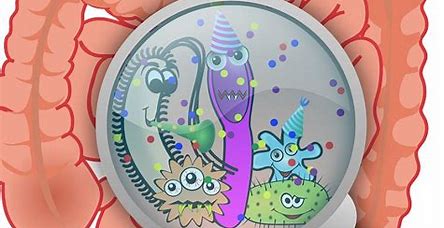Your clothes fit in the morning, but by lunchtime you have
to let your belt out a notch or two, Is this bloating? And is it something you
need to fix?

Bloating is that feeling of increased pressure in your intestines.
Do you need to worry about it? Here we set you straight on three myths about
bloating:
Myth 1. Bloating is not normal. “Occasional bloating is
totally normal, especially after a big meal or extra fibre,” says Dr Megan
Rossi, an Australian dietitian with a London-based practice specialising in gut
health and author of Eat More, Live Well.
“In fact, a bit of bloating after a high-fibre meal is good
– it’s a sign of well-fed gut microbes (including good bacteria) just doing
their thing. Continuous bloating, which is when you’re always bloated with no
fluctuations over the day, is less common and best reviewed by your doctor
first.”
Canadian dietitian Abby Langer agrees.
“The wellness industry tries to make us believe that all
bloating is a problem, but it’s unrealistic to believe that your stomach should
be flat all the time,” she says. “Just eating a regular-sized meal can distend
your stomach which may lead to complaints of bloating, when what you’re really
experiencing is a stomach full of food.”
Myth 2. There’s a simple cause. There are many different
triggers for bloating, says Rossi. These include the volume of food and fluid
you’ve eaten, a backlog of poop in the case of constipation, or simply the gas
produced by your own gut microbiota.
Eating foods containing sugar alcohols (sugar replacements
like sorbitol and xylitol) such as chewing gum will also contribute to
bloating, as can wearing tight clothes all day and lack of movement.
Stress can also have very real effects on our gut, says Langer,
including the feeling of bloating. The gut and brain are connected via nerves
in what’s called the gut-brain axis. When we are stressed the brain sends
signals to the gut to slow down digestion in the ‘fight or flight’ response,
which can trigger gut discomfort.
Rossi points out that whether you feel the bloating or not
can be down to your intestine’s sensitivity and how efficient your body is at
absorbing the gas produced by your unique gut microbiome.

Myth 3. You can fix bloating by cutting out unhealthy food.
Don’t cut out foods that are perfectly good for you before getting advice from
a nutrition professional such as an Accredited Practising Dietitian.
There are many diet and lifestyle strategies that can help
bloating, including checking for common food intolerances, splitting your food
intake into smaller meals, and chewing well.
Unnecessarily restricting your diet can make your gut more
sensitive, warns Rossi. That’s because your gut bacteria adapt to the food that
you eat, and when you feed it a diverse range of whole foods (including carbs)
the gut microbiome can produce enzymes that break down all the fibres found in
plants.
If you overly restrict your diet, you’ll have a less diverse
gut microbes and lack many of the microbes needed to digest plant fibres
efficiently. This can trigger gut symptoms such as bloating and excessive gas –
the very things you want to avoid.
If your bloating is frequent and comes with pain and
discomfort, speak to a dietitian or doctor for help.